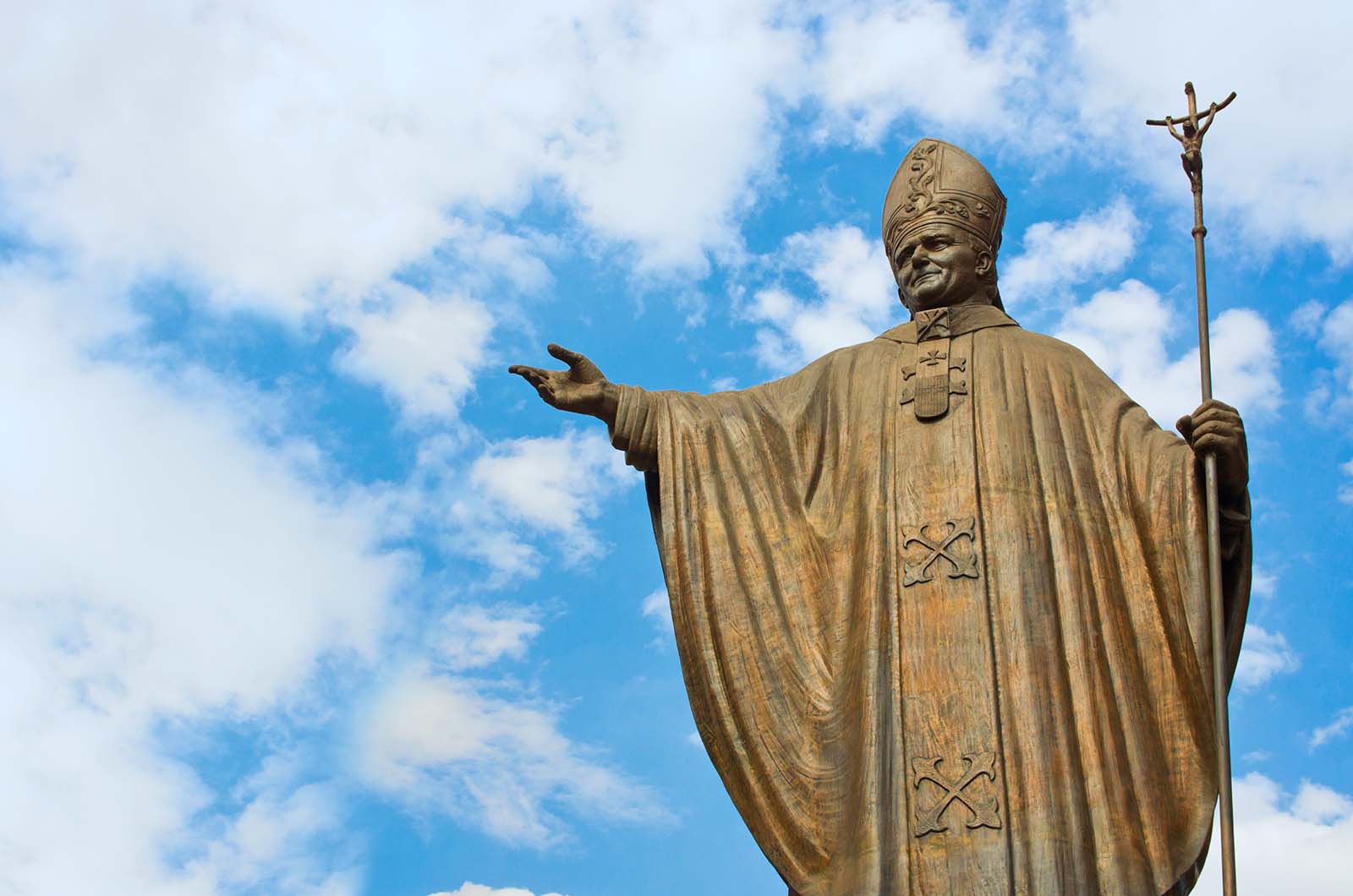Throughout Christ’s life, He bestowed upon the Apostles many powers and gifts, including the power of absolution, Confirmation and the gifts of the Holy Spirit, and induction into the Holy Orders. Before His ascension, He also made Peter the first pope, gave him the keys to heaven, and granted him the power of papal infallibility. But what exactly is papal infallibility? Can the pope ever make a mistake?
Recently on Morning Air, John Morales welcomed Father Marcel Taillon to talk about the role of the pope, his importance to the Church, and the true meaning of papal infallibility.
Before discussing the position of the papacy, John asked Father Marcel about Pope St. Leo the Great, one of only three popes to be known as “the Great”, and whose feast day we celebrated on November 10th. The title “the Great” doesn’t mean that the saint was a celebrity or necessarily well-liked. It means that the saint lived through a very discordant time in the Church’s history, and they exemplified the virtues of Christ so well that they changed the world.
Father Marcel said that St. Leo is known for his eloquent writings and teachings, which makes sense as he was later declared a Doctor of the Church. He became pope shortly after Christianity was made legal, so there were a lot of changes and uncertainty going on in the Church.
St. Leo was also integral in the preservation of Rome after Attila the Hun invaded Italy. There are conflicting stories as to the reason Attila left Rome after negotiations. Some say his own men convinced him with superstitions. Others say that Attila was so impressed with Leo’s intellect and eloquence that he decided not to attack. And still others say that a giant angel armed with a sword, visible only to Attila, stood behind Leo and threatened his army with death if they attacked Rome. St. Leo the Great truly embodied what it meant to be the Holy Father, the Good Shepherd protecting his sheep from the forces of evil.
Those were the duties passed from Jesus to His Apostles when He made Peter the pope. While a tremendous amount of power was given to him, a tremendous amount of prudence and strength were necessary to carry out these tasks. In Matthew’s Gospel, Jesus said, “And so I say to you, you are Peter, and upon this rock, I will build my church, and the gates of the netherworld shall not prevail against it. I will give you the keys to the kingdom of heaven. Whatever you bind on earth shall be bound in heaven; and whatever you loose on earth shall be loosed in heaven.” (Matthew 16:18-19)
That teaching is known as the magisterially apostolic teaching of the Church, signaling the divine power of Peter’s decisions. So long as he is in line with the Apostolic College, he will not falter on matters of faith and morals. This is the inception of papal infallibility. Jesus gave this power to the papal line of succession so that the teachings of the Church will never be misconstrued. The Church is “One, Holy, Catholic, and Apostolic”. It is the singular embodiment of the truth, irreplaceable by any other faith. It is holy, imbued with the divine teachings of Jesus Christ, the Son of God. It is Catholic, meaning universal, open to all and the same for all, across the world. And lastly, it is apostolic, true to the twelve apostles, the original bishops of Our Lord’s Church.
“But I think what happens today with social media and incredible exposure like never before in history, until the last twenty or thirty years, I think people are getting sort of confused at when the Pope teaches in a particular way infallibly versus when he’s just giving a daily homily or making a comment about something or the press conferences on the plane…” said Father Marcel. John joked that the Pope is not speaking infallibly when he tells us the best soccer team or how to read the stock market. Infallibility is not a free license for the Pope to declare the truth about anything. Infallibility is the great responsibility of ruling on matters of faith and morals in union with the bishops and the Magisterium of the Catholic Church. As long as these conditions are met, the Pope is free from error by the power of God.
Pope St. Leo the Great provided a great example of papal infallibility when he called the Council of Chalcedon. Amongst other matters discussed at the council, they clarified that Jesus Christ was one person with two natures, human and divine. As a condemnation of heresies Nestorianism and Monophysitism, St. Leo ruled infallibly in union with the Magisterium, the bishops of the Church, and the historical teachings passed down by Jesus Christ.
Listen to the full talk below:
Tune in to Morning Air weekdays at 5am CT

